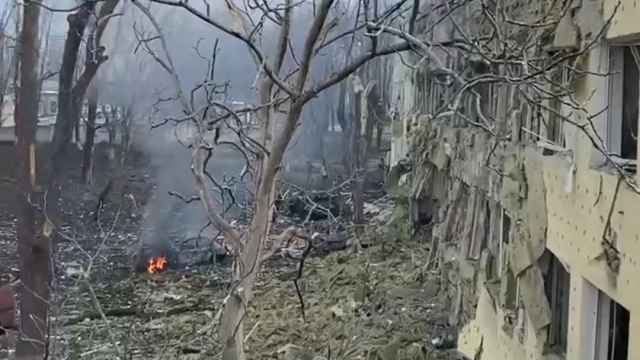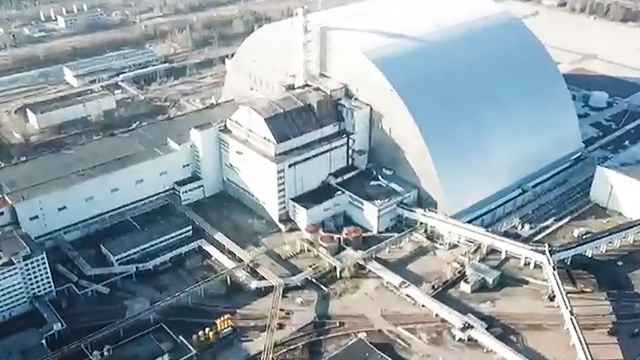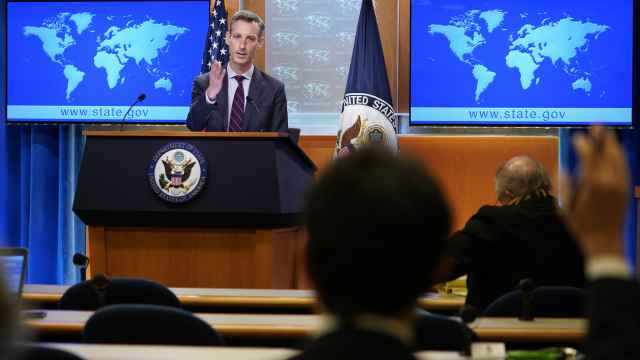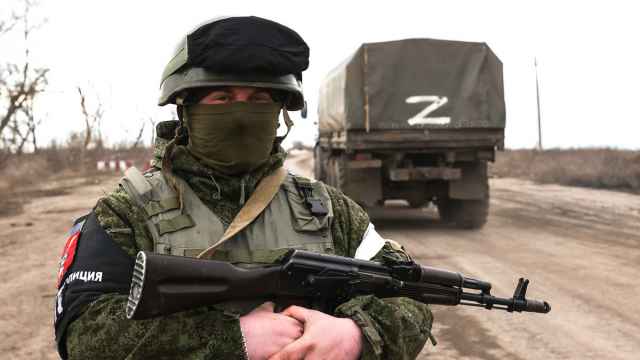Quickfire agreements on energy and the Kremlin-backed war that erupted after Vladimir Putin annexed Crimea show Ukraine and Russia can increasingly look past their differences to strike deals.
The natural-gas pact agreed late Monday, which ended fears of disruptions to European Union supplies, comes a day after the former allies’ second prisoner swap in four months. EU diplomats, mediating in both cases, may feel they’re making headway in easing tensions more than five years after the conflict in eastern Ukraine rekindled Cold War animosity and brought a barrage of sanctions against Russia.
That Ukraine and Russia now meet at all — let alone reach consensus on hot-button issues like these — marks undoubted progress. It’s been driven by pragmatism and a readiness to compromise under EU and U.S. pressure, including the Trump administration’s sanctions against Russia’s Nord Stream 2 gas pipeline project.
The gas deal was necessary as transit contracts ran down. Putin wants sanctions relief and Ukrainian President Volodymyr Zelenskiy has prioritized ending a war that’s killed more than 13,000 people.
The fundamental question -- whether Ukraine leans east or west — is going nowhere without concessions regarded as impossible by one side or another. The standoff with Moscow over Ukraine’s desire to join the EU and the North Atlantic Treaty Organization will remain a headache for world powers from Brussels to Washington.
“The events of the past several years have created significant changes in how the two governments and their people relate to one another, and to the rest of Europe,” said Alex Brideau, an analyst at Eurasia Group. “Recent developments help ease tension, but they don’t reset that relationship.”
Ensure flows
The EU will nevertheless breathe a sigh of relief after the accord was signed to ensure flows of gas through Ukraine from Russia’s Gazprom for the next five years. Supplies to the region have been cut twice during in the past 13 years at times of peak demand because of financial and political disputes between the two neighboring states.
Russia, keen to take advantage of French President Emmanuel Macron’s push to reintegrate it after years of isolation, has less incentive to cause mayhem this time. But it retains its long-term goal of seeking to slash dependence on Ukraine’s transit network.
That Russia agreed to a longer-than-expected gas deal this time reflects potential fallout from the U.S. sanctioning its Nord Stream 2 pipeline to send flows directly to Europe bypassing Ukraine rather than any act of kindness. For Zelenskiy, it ensures Ukraine remains one of the key transit routes for Russian gas during the remainder of his five-year term and beyond, earning the country billions of dollars in fees.
Still, the fact an initial deadline to finalize the deal was missed stems from a lack of trust that prompted demands for safeguards to be added to the new contracts.
Prisoner deal
There are similar reasons to scrutinize the exchange of prisoners.
Despite efforts to return all his countrymen, Zelenskiy remains frustrated, with hundreds still being held.
What’s more, the latest swap included Ukrainian riot police who sided with the Kremlin-backed leader that protesters toppled in 2014 after more than 100 were killed on the streets of Kiev. Handing over those officers, who aren’t prisoners of war, prompted demonstrations against their release back home.
The gas agreement and the prisoner swap cap a month in which Putin and Zelenskiy held their first face-to-face meeting during talks on the conflict in eastern Ukraine in Paris. While the detente remains fragile, the two sides enter 2020 with potentially the best prospects in years for easing tensions.
Putin and Zelenskiy spoke by phone on Tuesday and agreed to coordinate lists of detainees for possible future exchanges, according to a statement from the Ukrainian president’s office. The gas agreement creates a “favorable atmosphere for resolving other bilateral problems” and the Dec. 29 prisoner swap “helps strengthen mutual trust,” the Kremlin said in a statement.
There may be more prisoner exchanges, though “I do not think we will see real compromises on big issues” from Russia in relation to resolving the conflict, said John Herbst, director of the Atlantic Council’s Eurasia Center and a former U.S. ambassador to Ukraine.
A Message from The Moscow Times:
Dear readers,
We are facing unprecedented challenges. Russia's Prosecutor General's Office has designated The Moscow Times as an "undesirable" organization, criminalizing our work and putting our staff at risk of prosecution. This follows our earlier unjust labeling as a "foreign agent."
These actions are direct attempts to silence independent journalism in Russia. The authorities claim our work "discredits the decisions of the Russian leadership." We see things differently: we strive to provide accurate, unbiased reporting on Russia.
We, the journalists of The Moscow Times, refuse to be silenced. But to continue our work, we need your help.
Your support, no matter how small, makes a world of difference. If you can, please support us monthly starting from just $2. It's quick to set up, and every contribution makes a significant impact.
By supporting The Moscow Times, you're defending open, independent journalism in the face of repression. Thank you for standing with us.
Remind me later.






